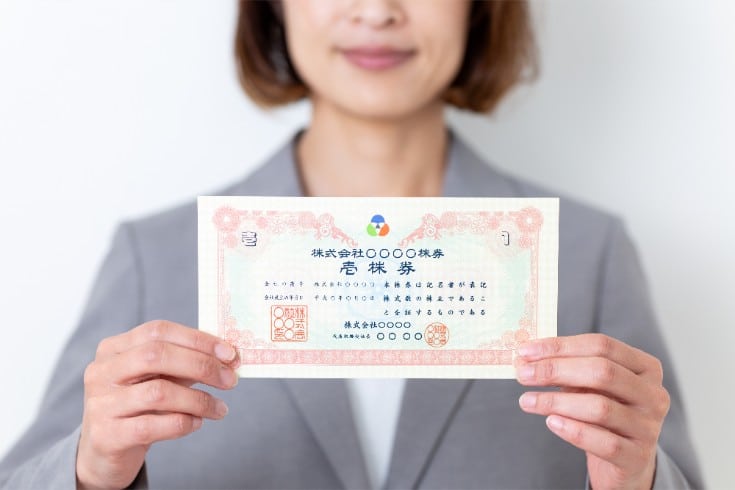Preferential Share Issuance under Japanese Corporate Law and Practical Considerations

The concept of “favorable issuance” under Japanese Corporate Law is an extremely important topic in the context of corporate financing and capital policy. It refers to the issuance of new shares to specific shareholders or third parties at a price significantly lower than the market value. While this act can strengthen a company’s financial foundation, it also has the potential to significantly affect the interests of existing shareholders, and therefore, is subject to strict legal regulations.
Favorable issuance is particularly used in the context of fundraising for startups, business succession, or as part of M&A strategies. However, incorrect procedures or pricing can lead to backlash from existing shareholders and the risk of legal disputes. Japanese Corporate Law places a strong emphasis on the principle of shareholder equality, and because favorable issuance can dilute the shareholding ratio of existing shareholders and decrease the value per share, its legality is strictly scrutinized.
This article provides a detailed explanation of the definition of favorable issuance under Japanese Corporate Law, the decision-making procedures, the criteria for determining a fair payment amount, and key court cases related to the issue. It also addresses the legal liabilities and remedies for inappropriate favorable issuances, striving to help readers deeply understand this complex legal concept.
Definition and Legal Basis of Preferential Issuance Under Japanese Corporate Law
In Japanese Corporate Law, preferential issuance is defined as “a case where the payment amount for the subscription of shares is particularly advantageous to the subscriber” (Article 199, Paragraph 3 of the Japanese Companies Act). This definition refers to situations where new shares are issued at a payment amount significantly lower than the market price or fair valuation. The term “particularly advantageous amount” is generally interpreted as an amount that is especially low compared to a fair payment amount. The determination of this “fair payment amount” differs between public and private companies.
Preferential issuance directly affects the interests of existing shareholders. The main impacts include the following two points. Firstly, the issuance of new shares at a low price results in an increase in the total number of issued shares, causing a ‘dilution effect’ that relatively decreases the value per share for existing shareholders. Secondly, existing shareholders may suffer an economic loss as they miss the opportunity to acquire new shares at a price lower than the market value.
These impacts may contravene the principle of shareholder equality, which is a key consideration in Japanese Corporate Law. Preferential issuance is not merely defined by the superficial act of issuing shares at a low price; its essence potentially harms the interests of existing shareholders and could violate the principle of shareholder equality, which is fundamental to Japanese Corporate Law. This inherent contradiction necessitates stringent legal regulations and a variety of legal remedies. Precisely because of its impact on the principle of shareholder equality, Japanese Corporate Law requires a special resolution for preferential issuance and provides legal remedies such as injunction requests, claims for invalidity, and pursuit of director liability in inappropriate cases.
Decision Procedures for Favorable Share Issuance: Differences Between Public and Private Companies in Japan
When a corporation in Japan issues new shares, it is necessary to determine the “offering terms” such as the number of shares to be offered, the payment amount, and the payment deadline (Japanese Companies Act, Article 199, Paragraph 1). As a rule, the decision on these offering terms is made by a special resolution at the shareholders’ meeting (Japanese Companies Act, Article 199, Paragraph 2, Article 309, Paragraph 2, Item 5). This is because the issuance of shares can have a significant impact on existing shareholders, and therefore, a careful decision is required.
In particular, when the payment amount for the offered shares is “especially favorable to the subscriber,” a special resolution at the shareholders’ meeting is mandatory for deciding on the offering terms (Japanese Companies Act, Article 199, Paragraph 2, Article 309, Paragraph 2, Item 5). In this case, the directors must explain at the shareholders’ meeting the reasons why it is necessary to offer the shares at that amount to that particular subscriber.
For public companies (as defined in Article 2, Paragraph 5 of the Japanese Companies Act), decisions on offering terms that do not constitute a favorable issuance can be made by a resolution of the board of directors (Japanese Companies Act, Article 201, Paragraph 1, Article 199, Paragraph 2). This is a special provision to enable public companies to raise funds quickly. However, even for public companies, a special resolution at the shareholders’ meeting is required if the issuance is considered favorable (Japanese Companies Act, Article 199, Paragraph 2, Article 309, Paragraph 2, Item 5).
Private companies (companies with transfer restrictions on all shares) tend to have stronger protection for maintaining shareholders’ ownership ratios. When issuing new shares by means other than shareholder allotment (such as third-party allotment), it has a significant impact on the existing shareholders’ ownership ratios, making a special resolution at the shareholders’ meeting essential. In private companies, since there are no legal requirements for notifying or announcing offering terms, there is a possibility that shareholders may be deprived of the opportunity to stop the issuance of new shares, which is considered important from the perspective of shareholder protection.
Obtaining a special resolution at the shareholders’ meeting is a legal requirement, but it may not be sufficient in some cases. For example, in the decision by the Kyoto District Court on March 28, 2018 (Amita Holdings case), despite having obtained a special resolution at the shareholders’ meeting, the issuance of new shares was judged to be “issued by a markedly unfair method,” and the request for an injunction was granted. The reason cited was that maintaining the control of the current management was the main purpose, and the explanations regarding the reasons for the new share issuance were insufficient. This judgment indicates that merely obtaining a special resolution at the shareholders’ meeting does not guarantee the legality of a favorable issuance. The “main purpose” behind the resolution and the “appropriateness and sufficiency of explanations” to shareholders are extremely important substantive elements in determining its legality. This case leads to a deeper understanding that companies must recognize the importance of substantive corporate governance and dialogue with shareholders, not just formal procedures. Inadequate purposes or insufficient explanations can increase the risk of legal disputes, even if there is a shareholders’ meeting resolution.
Criteria for Determining Fair Payment Amounts and Practical Considerations Under Japanese Law
The determination of whether an amount is “especially favorable” is made by comparing it to the fair value of the shares in question.
For public companies, the market price serves as the benchmark since it exists. Generally, if the amount is at least 90% of the market price on the day before the board of directors’ resolution, it is often deemed not to be a favorable issuance. In the case of listed companies, the “Guidelines on the Handling of Third-Party Allotments” published by the Japan Securities Dealers Association become an important standard in practice. According to these guidelines, “the payment amount should be at least the amount obtained by multiplying 0.9 by the value of the shares on the day before the board of directors’ resolution (or, if there were no transactions on that day, the most recent day’s value).” Additionally, the amount obtained by applying 0.9 to the average market price over a maximum period of six months is also considered.
For private companies, where no market price exists, various valuation methods are used to calculate the fair value of their shares. The main valuation methods include:
- Comparable company analysis: This method evaluates the value by comparing dividend amounts, profit amounts, and net asset values with similar listed companies. It is often applied to large and medium-sized companies.
- Net asset value method: This method evaluates based on the company’s net assets, which are total assets minus liabilities. It is often applied to small companies or those with significant specific assets.
- Dividend discount model: This method evaluates the value of shares based on the dividends shareholders receive. It may be used for valuing shares held by minority shareholders.
These valuation methods vary depending on the size and personalityistics of the company and the purpose of the valuation, and there is no clear single standard. Therefore, it is extremely important to determine the issue price using a reasonably rational calculation method based on objective data.
The criteria for determining a fair payment amount differ significantly between public and private companies. Notably, the Supreme Court of Japan’s decision on February 19, 2015 (Heisei 27), by the First Petty Bench, provided a groundbreaking view for private companies. The decision pointed out that there are various methods for calculating the share price of non-listed companies, and there is no clear standard, and that the judgment includes elements such as future earnings that have a certain range of discretion. It also ruled that it is not appropriate for courts to use different valuation methods or different forecast values retrospectively to determine whether an amount is “especially favorable,” as this would harm the predictability for directors.
This decision implies that legal disputes will focus not merely on the “appropriate valuation amount” retrospectively but on the “process” by which directors arrived at the price decision and the “rationality of the underlying data.” This judgment emphasizes the importance for directors to conduct the price determination process more carefully and to clearly record the basis for it in practice. This directly affects the due diligence approach when private companies conduct favorable issuances, increasing the need for companies to prepare detailed valuation reports and minutes of board discussions to demonstrate that the price is “reasonably rational.” This is an essential response to mitigate the risk of future legal disputes.
Analysis of Key Court Cases Related to Preferential Share Issuances Under Japanese Corporate Law
Supreme Court Precedent on Preferential Share Issuance of Unlisted Companies: Supreme Court of Japan, First Petty Bench Decision, February 19, 2015 (2015)
This ruling addressed whether the subscription price for new shares issued by an unlisted company constituted a ‘particularly advantageous amount.’ In the lower courts, it was determined to be a preferential issuance due to a significant discrepancy between the fair value calculated by the court and the issuance price.
However, the Supreme Court of Japan pointed out that there are various methods for valuing the shares of an unlisted company and no clear standards exist, and that the valuation includes a wide range of judgment factors, such as future earnings. Furthermore, the Court ruled that it was not appropriate for the courts to use different evaluation methods or alternative forecast values retrospectively to determine whether the issuance price was ‘particularly advantageous,’ when the board of directors had decided on the issuance price based on an ‘initially reasonable calculation method’ grounded in objective materials.
This decision strongly suggests the importance of the process by which directors of an unlisted company calculate a fair value for new share issuance and the objective materials that underpin it. As a result, directors are now faced with an increased need to prepare to explain the rationality of their pricing decisions retrospectively.
Case of Issuance Deemed Grossly Unfair: Kyoto District Court Decision on March 28, 2018 (Amita Holdings Case)
In this case, amidst a conflict between a shareholder who had acquired over 25% of a company’s shares and the company itself, the company attempted to issue new shares through a third-party allotment for the purpose of fundraising. The shareholder sought an injunction to prevent this issuance.
The court recognized that the primary purpose of the new share issuance was to maintain the control of the current management. It ruled that even if a special resolution of the shareholders’ meeting had been obtained, the issuance was considered to be “grossly unfair” due to insufficient explanation of the reasons for the issuance and other related matters, and thus granted the shareholder’s injunction request.
This decision clearly indicates that even if a formal special resolution of the shareholders’ meeting is obtained, new share issuance can be deemed illegal if the true purpose is deemed improper maintenance of control, or if the explanation to shareholders is inadequate. It emphasizes the importance of directors clearly stating the purpose of the new share issuance and fulfilling their duty to provide sufficient information and explanation to shareholders.
Case Law on Favorable Share Issuance Taxation: Supreme Court of Japan Decision on February 24, 2017 (Shinko Shoji Case) and Tokyo High Court Decision on December 15, 2010
The Shinko Shoji case involved the taxation of shares acquired by Shinko Shoji through a capital increase of its Thai subsidiary, which were deemed to be favorably issued shares under the Japanese Corporate Tax Law.
The Supreme Court of Japan rejected Shinko Shoji’s petition for acceptance of appeal, thereby confirming the company’s defeat. This maintained the judgment that the difference between the market value of the shares and the amount paid constitutes the “amount of profit” under Article 22, Paragraph 2 of the Japanese Corporate Tax Law, and is taxable as a gift benefit. This decision indicates the possibility of favorable share issuance taxation arising when a parent company subscribes to a capital increase at face value in a foreign subsidiary subject to foreign investment regulations.
The Tokyo High Court decision on December 15, 2010, also dealt with the tax implications for the subscriber in a new share issuance, particularly whether the difference between the market value of the shares and the subscription price constitutes the “amount of profit” under Japanese Corporate Tax Law.
These cases demonstrate that favorable issuance is not only a matter of Japanese Company Law but also has significant implications under Japanese tax law (Corporate Tax Law). Even if the procedures under Company Law are appropriate, there is a possibility that the tax authorities will tax the difference between the market value and the paid-in amount as a “gift benefit.” This issue becomes particularly evident in the specific context of capital increases in foreign subsidiaries with foreign investment regulations. It suggests that the criteria for determining favorable issuance under Company Law and under tax law (especially the method of calculating market value) may not always coincide. Therefore, in international transactions, it is necessary to consider not only the legality of the procedures under Company Law but also the tax risks. Even if the issuance is legally favorable under Company Law, overlooking the tax risks could result in unexpected and significant tax liabilities. This strongly suggests that when formulating a capital-raising strategy, companies should seek comprehensive advice from legal and tax experts working in collaboration.
Legal Responsibilities and Remedies for Inappropriate Preferential Share Issuance Under Japanese Corporate Law
When an inappropriate preferential share issuance occurs, Japanese Corporate Law provides multiple legal responsibilities and remedies. These are designed to balance the protection of shareholders with the stability of the corporate organization.
Directors’ Liability for Damages to the Company
If directors neglect their duties and cause damage to the company, they are liable for damages to the company (Article 423, Paragraph 1 of the Japanese Companies Act). In the case of an inappropriate preferential share issuance, such as issuing new shares at a favorable price without a special resolution of the shareholders’ meeting, directors may be liable to compensate the company for the difference between the fair payment amount and the payment amount of the issued shares. Additionally, shareholders who have subscribed to shares at a significantly unfair payment amount may also be obligated to pay the difference from the fair payment amount.
Injunction Request Against New Share Issuance
If the effect of the new share issuance has not yet occurred, shareholders can request the company to stop the issuance if it violates laws or the articles of incorporation, or if it is carried out in a significantly unfair manner (Article 210 of the Japanese Companies Act). This request serves as a preventive remedy to correct the illegality or unfairness before the new share issuance is executed. Especially in private companies, where there is no obligation to notify or announce to shareholders, this opportunity for an injunction is important from the perspective of shareholder protection.
Lawsuit for Invalidating New Share Issuance
After the effect of the new share issuance has occurred, a “lawsuit for invalidating new share issuance” must be filed to claim its invalidity (Article 828, Paragraph 1, Item 2 of the Japanese Companies Act). This lawsuit has a strict filing period. For public companies, it is within six months from the day the effect of the share issuance occurs, and for private companies, it is within one year (Article 828, Paragraph 1, Item 2 of the Japanese Companies Act). This time limitation is set to protect the stability of the numerous legal relationships formed after the new share issuance.
The lawsuit for invalidating new share issuance is only granted when there is a “serious defect” in the issuance procedure. For example, issuing more shares than the total number of shares that can be issued, issuing a type of share not stipulated in the articles of incorporation, and particularly in private companies, the lack of a special resolution of the shareholders’ meeting are cases in point. For public companies, the absence of a board of directors’ resolution is not considered a cause for invalidity if carried out by the representative director, as per precedents (Supreme Court judgment of March 31, 1961, Tokyo District Court judgment of October 29, 2008). However, the Tokyo High Court judgment of July 15, 2020, states that precedents under the old Commercial Code differ from cases where the current Companies Act is applied, and considering the current law’s emphasis on protecting the interests of existing shareholders in private companies, the lack of a shareholders’ meeting resolution is a cause for invalidity. The effect of an invalidity judgment extends to third parties but only operates prospectively, without retroactive effect (Articles 838 and 839 of the Japanese Companies Act).
These remedies do not merely exist in parallel but form a hierarchical system with different purposes and functions. The injunction request is preventive, the lawsuit for invalidating new share issuance is a last resort to correct serious illegality while maintaining legal stability post-issuance, and directors’ liability aims to sanction those who have committed illegal acts and compensate the company. This hierarchy suggests how Japanese Corporate Law attempts to balance the stability of corporate activities with shareholder protection. For companies, this system emphasizes the importance of thoroughly assessing legal risks from the planning stage of new share issuance and following proper procedures. For shareholders, it suggests that the timing and choice of exercising rights significantly impact the outcome.
Summary: Monolith Law Office’s Expertise and Support System
Preferential share issuance under Japanese Corporate Law is a crucial means for companies to raise funds, yet it involves extremely complex legal challenges, from its definition, decision-making procedures, fair value assessment, to the related legal liabilities. Particularly, its legality is always strictly scrutinized from the perspective of protecting existing shareholders’ interests and the principle of shareholder equality. Improper procedures or purposes can lead to serious consequences such as legal disputes, liability for damages, and even the invalidation of new share issuance.
Monolith Law Office boasts a wealth of experience and deep expertise in Japanese Corporate Law, especially in matters related to share issuance and preferential offerings, serving numerous clients within Japan. From public to private companies, we provide practical advice to support clients’ business strategies to the fullest while minimizing legal risks in various scenarios such as fundraising, mergers and acquisitions (M&A), and business succession.
Our firm employs several attorneys who are fluent English speakers with foreign legal qualifications, enabling us to provide meticulous support in both Japanese and English. We strive to offer clear and understandable explanations to foreign clients about the complexities of Japanese Corporate Law and business customs, addressing their questions and concerns to ensure they can confidently proceed with their legal strategies.
Category: General Corporate





















